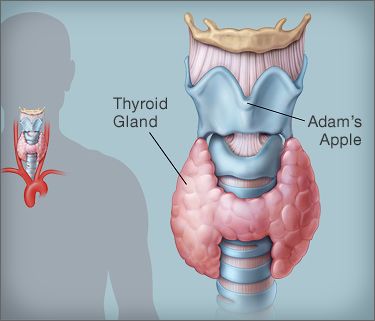The thyroid is one of the body’s most important glands. Thyroid dysfunction is one of the most common clinical conditions seen frequently. Thyroid function influences energy formation, circulation, immune function, the metabolism of all the organs, blood sugar regulation, emotional stability, and hormonal balance. Hyperthyroidism is when the thyroid gland produces an excess of hormones. This is associated with weight loss coupled with increased appetite, heart palpitations, increased body heat, bulging eyes, restlessness, anxiety, sleep disturbances or insomnia, muscle weakness, trembling hands, and decreased menstrual flow. Hypothyroidism is a condition in which the body lacks sufficient thyroid hormone. This occurs with greater frequency in women between the ages of 40-50 and may affect as many as 10% of women over age 50. It is associated with symptoms like fatigue, weight gain, low motivation, heat and/or cold intolerance, headaches and migraines, dry skin and hair, hair loss, fluid retention, unhealthy brittle nails, constipation, irritable bowel syndrome, asthma, allergies, slow healing, acne, hives, carpal tunnel syndrome, low sex drive, insomnia, irritability, anxiety and panic attacks, depression, decreased memory and concentration, and sometimes infertility.
0







